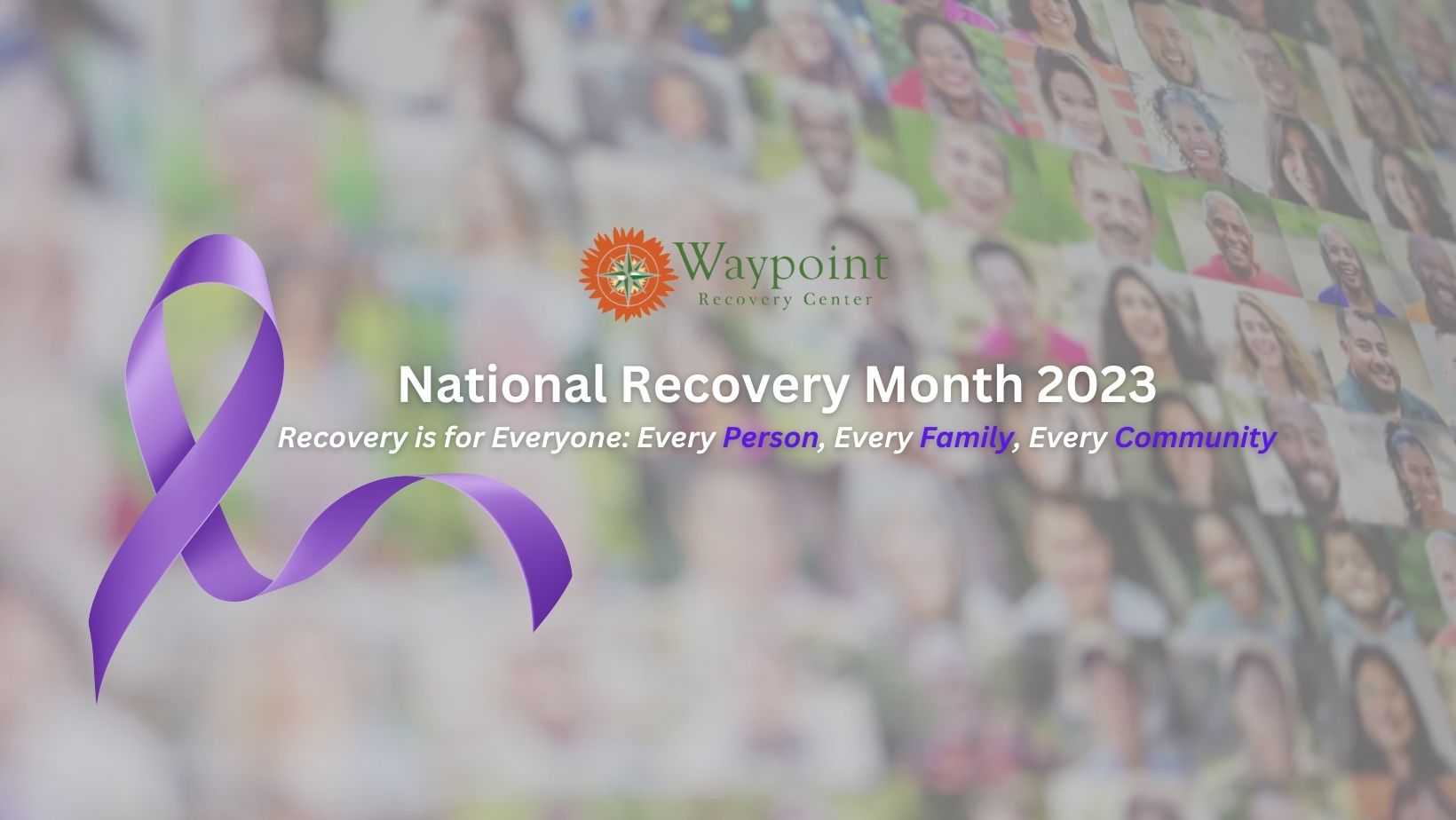Since 1989, September has been observed as National Recovery Month throughout the United States. The goal of this observance is to reduce the stigma surrounding addiction and mental health issues, highlight the effectiveness of treatment, and celebrate people who are currently in recovery.
In his Presidential Proclamation, President Joe Biden said, “Mental health and substance use disorder care is health care. It is essential to people’s well-being—to their ability to lead full and productive lives, to find joy and meaning, to take care of themselves and their loved ones, and to give back to their communities and our Nation.”
For 2023, the Substance Abuse and Mental Health Services Administration (SAMHSA), a branch of the U.S. Department of Health and Human Services, has selected “Hope Is Real. Recovery Is Real.” as the theme for National Recovery Month. Let’s take a look at why there’s always hope for recovery, regardless of what challenges you’ve faced in the past.
Relapse Is Not a Sign of Failure
To understand why recovery is always possible, you must first consider the nature of addiction. Addiction is a complex disease that affects both the brain and behavior. It alters your brain’s chemistry, making it extremely challenging to quit without professional help.
It’s crucial to recognize that relapse is a common part of the recovery process and not a sign of failure caused by a lack of willpower. Did you know that the National Institute of Drug Abuse reports relapse rates of between 40 and 60 percent for substance use disorders—numbers that are actually better than the 50 to 70 percent relapse rates for asthma and hypertension? All a relapse means is that your treatment plan needs to be adjusted to give you the tools you need to be successful.
People Are Incredibly Resilient
One of the most beautiful aspects of human nature is our capacity for resilience. Regardless of how many times you’ve relapsed, your ability to persevere through adversity demonstrates this resilience. Each setback can be viewed as a learning opportunity, bringing you one step closer to your goal of a lasting recovery.
Do not fall into the trap of playing the victim. You may have been treated unfairly in the past or suffered from trauma, but you deserve to be the hero of your own story. Seeking professional treatment for your substance use disorder is the first step.
The Science of Neuroplasticity Proves We All Have the Power to Make Positive Changes
The brain’s remarkable ability to adapt and change, known as neuroplasticity, provides hope for recovery. It emphasizes that recovery is not just about abstaining from substances but also about reshaping the brain’s neural connections for a healthier, addiction-free life.
During addiction recovery, as you abstain from substances and engage in healthier habits, the brain begins to reorganize itself. New neural pathways are formed, and existing ones are strengthened, gradually reducing the intense cravings and compulsions associated with addiction. This process can lead to improved decision-making, enhanced self-control, and a greater capacity to resist triggers—ultimately supporting your goal of achieving long-term sobriety.
Treatment Plans Can Be Tailored to Meet Individual Needs
Not all treatment approaches work for everyone. Past unsuccessful attempts might be due to an inadequate or poorly suited treatment plan. The key to finding hope in recovery is recognizing that there are various treatment options available. It may require trying different approaches, therapies, or support groups to discover what works best for you.
Many of the men and women seeking treatment at Waypoint Recovery Center have had past unsuccessful attempts. We meet their needs with an assessment that identifies strengths and weaknesses to create a personalized care plan.
Research Has Shown That Addressing Co-Occurring Disorders Is Key
In the past, substance use disorders and mental health conditions like depression and anxiety were considered two separate problems. Today, however, we understand that mental health issues contribute to both addiction and the risk of relapse. By addressing co-occurring disorders, you can significantly improve your chances of long-term recovery.
We believe that comprehensive treatment that focuses on both addiction and mental health can be a game-changer. Our South Carolina residential drug and alcohol addiction center provides a wide range of counseling services and treatment options to address the effects of both substance abuse and co-occurring mental health disorders.
When You Have Access to a Strong Support System, There’s No Limit to What You Can Accomplish
Recovery doesn’t happen in isolation. Building a robust support system is crucial. Surrounding yourself with understanding and compassionate individuals who can provide emotional support can make all the difference. This includes family, friends, support groups, and addiction treatment professionals.
As part of our commitment to providing a full continuum of care, we offer continuing recovery and recovery management services that help graduates of our residential treatment program connect to recovery services in their communities and ease the transition back to independent living. Contact us today to learn more.





